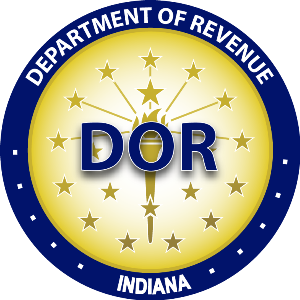 INDIANAPOLIS, In. — The Indiana Department of Revenue and Commissioner Adam Krupp warn customers to always be leery of any suspicious phone calls or emails that may be tax scams.
INDIANAPOLIS, In. — The Indiana Department of Revenue and Commissioner Adam Krupp warn customers to always be leery of any suspicious phone calls or emails that may be tax scams.
“We’re only a week into tax season and scammers are already busy at work trying to get their hands on Hoosier taxpayers’ information,” said Commissioner Krupp. “Everyone needs to be aware of these attempts and know what their options are to keep their information from getting into the wrong hands.”
Over the last week, DOR has received calls from concerned Hoosiers who have been contacted by an organization identifying themselves as a “crime investigation unit” within the Internal Revenue Service (IRS) and the state’s revenue agency. Hoosiers have been threatened with arrest warrants and told to provide Social Security numbers, driver’s license numbers and/or bank account information in exchange for no further legal action.
First, DOR wants customers to know the IRS and DOR initiate most contacts with customers through regular mail delivered by the United States Postal Service. However, there are special circumstances in which either tax agency will call or come to a home or business—such as when a taxpayer has an overdue tax bill, to secure a delinquent tax return, to secure a delinquent employment tax payment or to tour a business as part of an audit or criminal investigation.
Even during special circumstances, taxpayers will usually receive several letters—or notices—from the tax agency in the mail before an in-person visit.
Second, Hoosiers need to educate themselves on what the IRS and DOR can and cannot do so they are prepared if they receive scam calls or emails filled with demands and threats.
The IRS and DOR cannot:
- Call demanding immediate payment using a specific payment method, such as a prepaid debit card, gift card or wire transfer. Generally, the taxpayer will receive a bill in the mail if taxes are owed.
- Demand taxpayers pay taxes without the opportunity to question or appeal the amount owed. Taxpayers should also be advised of Indiana’s Taxpayer Bill of Rights.
- Threaten to bring in local police, immigration officers or other law-enforcement to have the taxpayer arrested for refusing payment.
- Threaten to revoke a taxpayer’s driver’s license, business licenses or immigration status. Threats like these are common tactics scam artists use to trick victims into buying into their schemes.
“Tax scams, unfortunately, affect thousands of Americans each year from phone to email to mail,” said Commissioner Krupp. “DOR is working hard to prevent all Hoosiers from falling victim to any organization identifying itself as being part of our agency. The key to preventing yourself from being a victim is education. We are here to help in that process.”
If individuals feel they are being targeted with a tax scam, DOR encourages them to follow these guidelines:
- Do not give the caller any personal information.
- If you’ve received an email, do not click on any links or attachments unless you know it is from a legitimate source; if you’re not sure, don’t click.
- When in doubt, call the IRS or DOR to confirm any communications.
- Report any scams to the IRS or DOR.
To confirm any claims made by potential scammer contact the IRS at 1-800-829-1040 or DOR Customer Service at 317-232-2240, Monday through Friday, 8 a.m. – 4:30 p.m. EST.
“Anytime a Hoosier questions the validity of any correspondence they receive, they are always entitled to question everything they are being told, to ensure they are speaking to an appropriate state or federal tax agent.”



